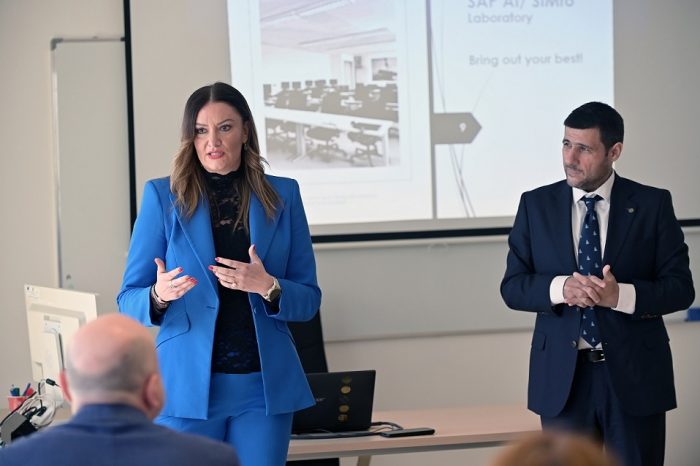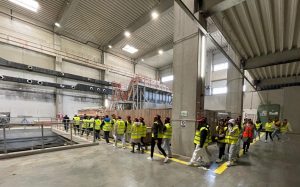SAP TechEd 2023: SAP supports developers in generative artificial intelligence and offers learning opportunities in the new technological era

At the 2023 SAP TechEd event, SAP SE (NYSE: SAP ) announced a comprehensive set of features and advances in generative AI designed to give developers, regardless of skill level, the ability to take their new level business in the age of artificial intelligence.
“Today’s dynamic technology and business landscape means that every developer must also be an AI developer,” said Juergen Mueller, Chief Technology Officer and Member of the Executive Board of SAP SE.
“The innovations we are launching at SAP From AI-enriched pro-code tools to a unique interface to build generative AI extensions and applications using the SAP Business Technology Platform, TechEd supports developers at the heart of the AI revolution and gives them the resources they need to to transform the way business works,” Juergen Mueller added.
As organizations seek to derive business value from generative AI, effective collaboration between professional developers and citizen developers is essential. SAP thus launches SAP Build Code solutions, which streamline cooperation with business experts using low-code SAP Build solutions launched at SAP TechEd in 2022.
Created exclusively for SAP applications and the SAP ecosystem, SAP Build Code solutions provide AI-based productivity tools for developers and are optimized for Java and JavaScript development. SAP Build Code also draws on the power of SAP’s new artificial intelligence generative copilot Joule – the copilot that truly understands business – to further boost productivity by incorporating code generation capabilities for data models, of application logic and creating test scenarios.
Quality data is the foundation of tailored AI, and SAP HANA Cloud continues to pioneer data innovation by adding new vector database features to its multi-model offerings at no additional cost. Vector data stores manage unstructured data—such as text, images, or audio—to provide long-term memory and better context for AI models. This makes it easy to find and quickly retrieve similar objects. For example, users can search for suppliers based on language in their contracts to review payment history and track individual orders. These powerful new vector database features improve interactions between large language models and an organization’s critical data.
The innovation helps put SAP developers at the forefront of delivering radically new levels of data insight in a secure and private framework that uses industry-specific customer data to reduce errors. AI Foundation, a new one-stop-shop for developers that enables the creation of extensions and applications based on artificial and generative intelligence on SAP BTP, will further increase the impact and efficiency of developers. AI Foundation includes everything developers need to start building business-friendly AI tools on SAP BTP – from ready-to-use AI services and access to best-of-breed language models to database capabilities vectors and AI runtime and lifecycle management.
The rapid pace of technological innovation has led to an increase in global demand for skilled developers, and SAP is increasing its learning opportunities in parallel. As part of a commitment to upskill two million professionals by 2025 and to supplement the free AI learning content already available, SAP today launched a new role-based certification and free learning resources for back-end developers using ABAP Cloud development model. The two new learning resources covering ABAP development tools on SAP BTP and SAP S/4HANA are available on the SAP Learning site.
They are designed for an agile and cloud-compliant transformation, giving developers the skills to build cloud-ready extensions aligned with SAP’s core strategy. SAP has also joined the Stanford HAI (Institute for Human-Centered AI) Corporate Affiliate Program. SAP researchers and engineers will thus collaborate with the Stanford academic community, including faculty and research students, at the intersection of generative artificial intelligence and the business environment.
















